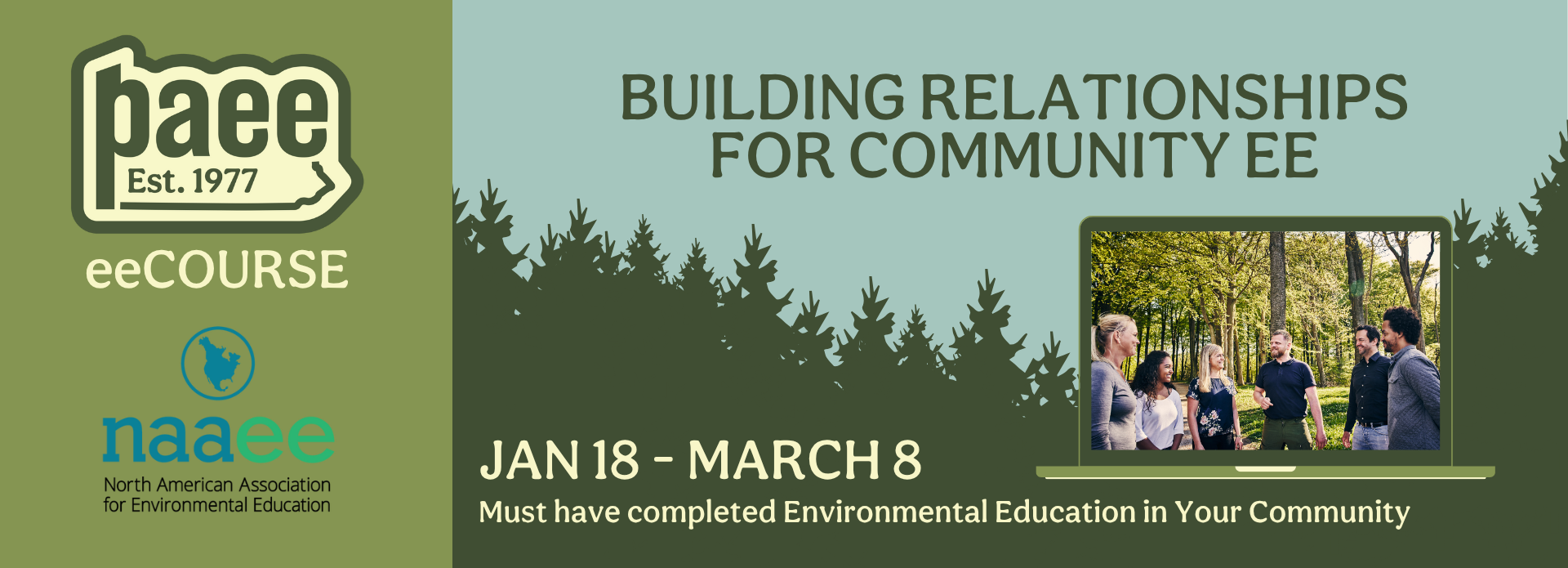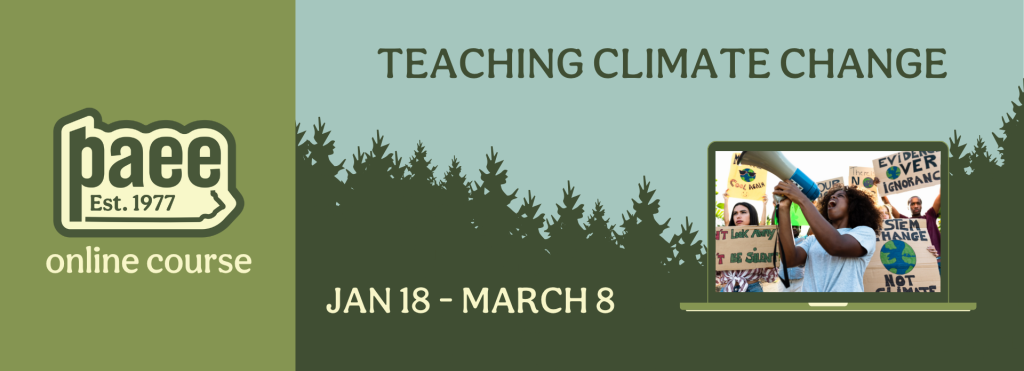eeCOURSES
eeCourses and other classes offer online, flexible, and ongoing professional development opportunities for formal and non-formal educators. Each course is designed to develop key competencies and skills in a specific subject or focus area. Take a look at what we have to offer.

This course runs from January 18 - March 8, 2026.
Deadline to register is January 9
Cost - $65 for PAEE Members, $100 for nonmembers, 12 Hours ACT 48 available ($10)
Did you take the Prerequisite course Environmental Education in Your Community? If YES then
About This Program
This course focuses on Key Characteristic 1 of the Guidelines for Excellence: Community Engagement and will help you take steps toward building relationships in your community. “Environmental Education in Your Community” is a prerequisite.
Objectives and Expectations
By the end of this course, you will be able to:
- Work with partners and allies within the community that are already addressing or have the potential to address related environmental and sustainability issues.
- Determine your readiness for community engagement.
- Evaluate the appropriateness of a community-based approach to an environmental-related issue you would like to address.
- Explore existing assets and capacity within the community.
- Work with appropriate community organizations in order to involve a broader community through a variety of outreach methods.
Format: This is an asynchronous online course.
- All activities must be completed independently on your own time/schedule within the 7 week timeframe. The actual time to complete the course will vary, but we estimate it will take approximately 12 hours.
- We will provide a suggested timeline and periodic reminders to encourage timely completion of assignments. While we want to be flexible, we also want these learning experiences to be meaningful and we think timely and periodic work in the courses will benefit participants more than trying to complete coursework at the last minute.
- Coursework includes watching videos, reading articles, posting on forums and Padlet boards, and writing personal reflections using the Moodle Platform.

This course runs from January 18 - March 8, 2026
Cost - $50 for PAEE Members, $85 for nonmembers, 10 Hours ACT 48 available ($10)
Deadline to register is January 9.
About This Program
(this is an independent course, not an eeCourse)
In this self-paced 7-week course, you’ll find articles, videos, data, and other resources to help you understand climate change evidence, issues, teaching best practices, and impacts, and explore personal connections. Some resources are specific to the Chesapeake Bay watershed region, but the majority will help educators from around the country.
Climate change is one of the largest threats facing our planet. Each day we understand more about this complex topic, which can change how we share data and teach about climate change. Keeping up with this changing discussion can be daunting, which is where this course comes in! This course is not designed to be comprehensive. Rather, this course is designed to provide an overview of climate change, touch on some of the impacts, and share resources for you to learn more. We will continue to update this course with new information.
Consider this course a primer. If you’d like to learn more about climate change, and maybe earn graduate credit, check out the sampling of Advanced Climate Change courses at the end of this course.
Course Objectives:
- Explain climate change basics including the history of climate science and evidence.
- Explain the difference between weather and climate and the basics to climate and Earth systems science.
- Connect human actions to the increase in carbon dioxide and how this increase is affecting our climate.
- Examine climate justice issues.
- Present some climate change impacts, responses, and solutions.
- Create your climate data story.
Format: This is an asynchronous online course.
- All activities must be completed independently on your own time/schedule within the 7 week timeframe. The actual time to complete the course will vary, but we estimate it will take approximately 12 hours.
- We will provide a suggested timeline and periodic reminders to encourage timely completion of assignments. While we want to be flexible, we also want these learning experiences to be meaningful and we think timely and periodic work in the courses will benefit participants more than trying to complete coursework at the last minute.
- Coursework includes watching videos, reading articles, posting on forums and Padlet boards, and writing personal reflections using the Moodle Platform.
